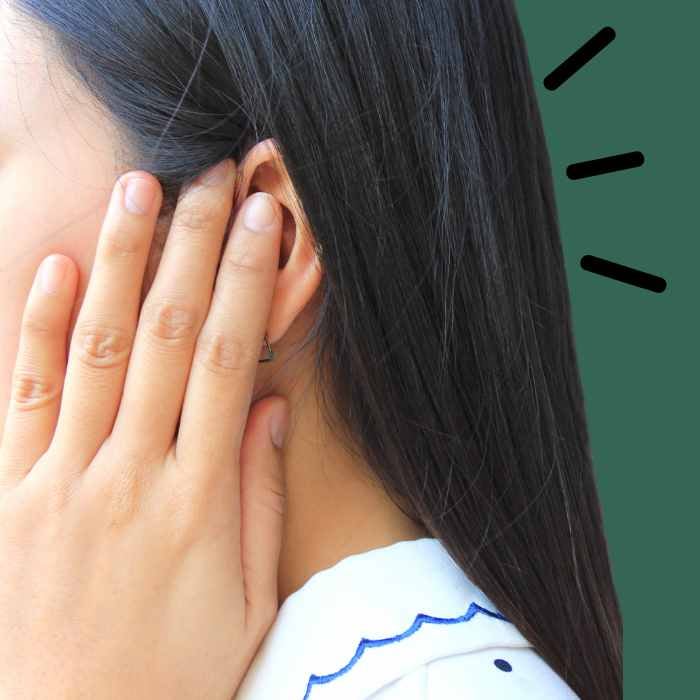Key Takeaways:
- Itchy ears are not uncommon when adjusting to hearing aids, as it takes time for the ear to adjust to the presence of a hearing aid.
- Other common causes of itchy ears includes medical conditions, such as dry skin, earwax build-up, fungal infections, or swimmer's ear.
- Avoid using Q-tips or overuse of hydrogen peroxide or rubbing alcohol, as these can further irritate the ear.
- If you have itchy ears, it's best to seek medical advice if the condition persists.

As an audiologist, I received many questions on itchy ears over the years. The ear maintains its delicate ecosystem and balance without needing much help.
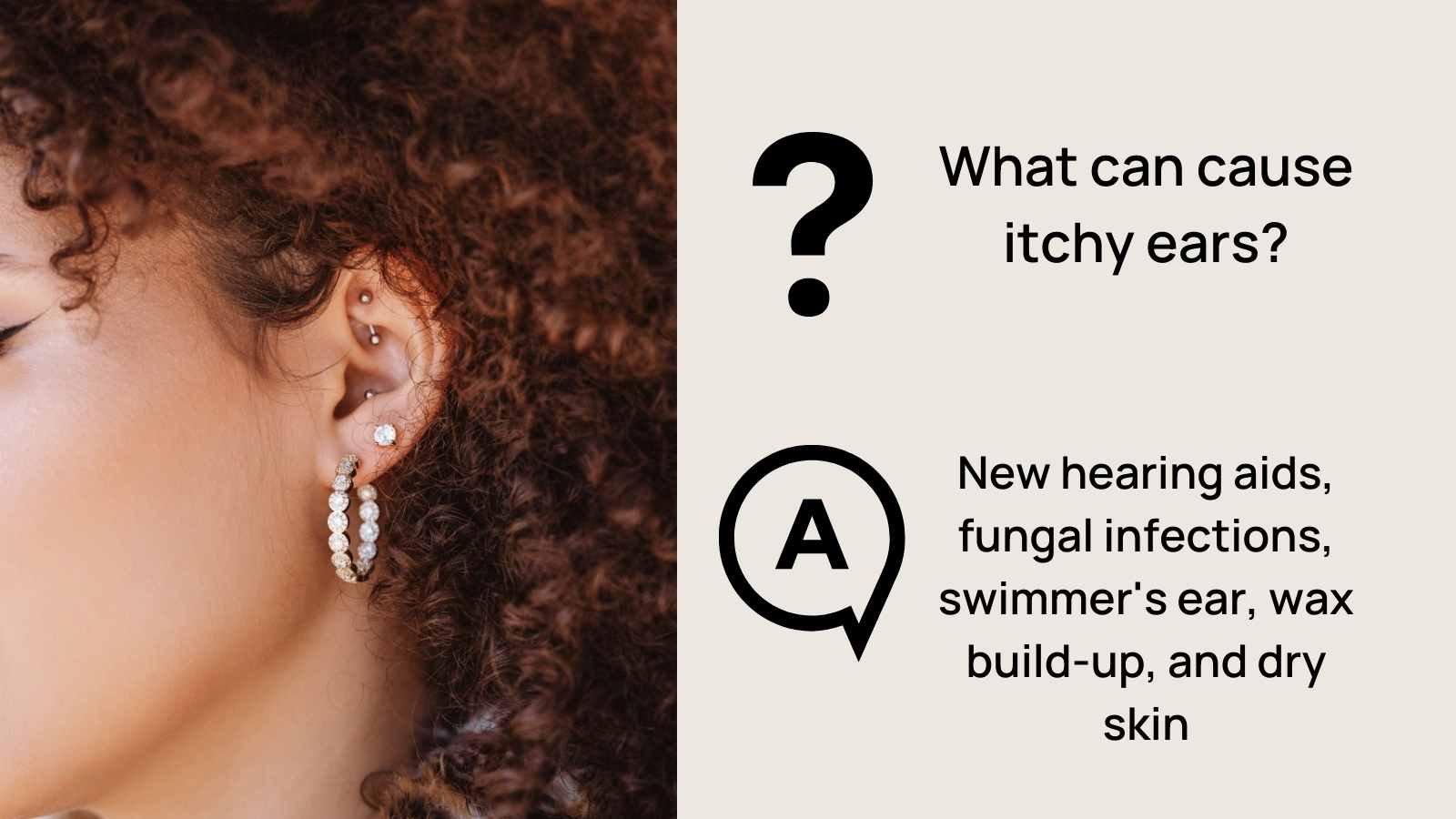
However, putting Q-tips or other tools in the ear can disrupt its normal state and lead to itching in the ears (plus, other discomfort too). From fungal infections to earwax build-up, there are many causes for this common problem. Plus, there are a few solutions that can help depending on what's exactly causing the itchiness. Ready to learn more? Keep scrolling and get the facts and primary causes of itchy ears and the best ways to treat symptoms.
New Hearing Aids
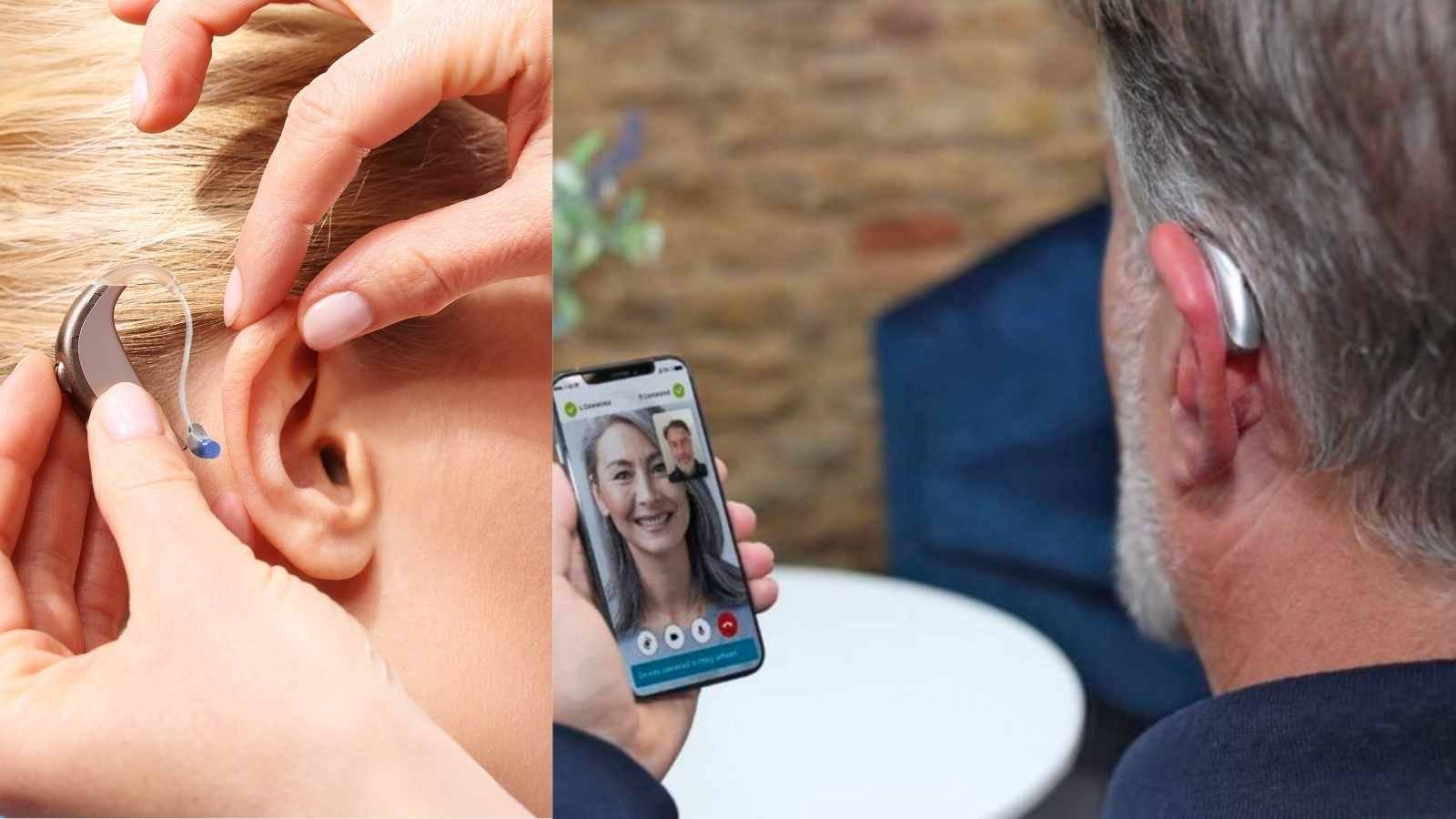
Typically, I see this with some new hearing aid users who report that their hearing aids are irritating their ears. Keep in mind, part of the hearing aid adjustment process includes not only adjusting to the sound of the hearing aids, but also the physical fit of wearing something in the ear. Most of my patients adjust to the sound, and the physical sensation of new hearing aids within several weeks. If anything is causing pain or discomfort, there are tactics that your audiologist can employ to adjust the earmold or dome tip to make it more comfortable. For example, there are tools in the office to grind the earmold, different size dome tips to try, or some Oto Ease to make the adjustment process more manageable.
Fungal Infections
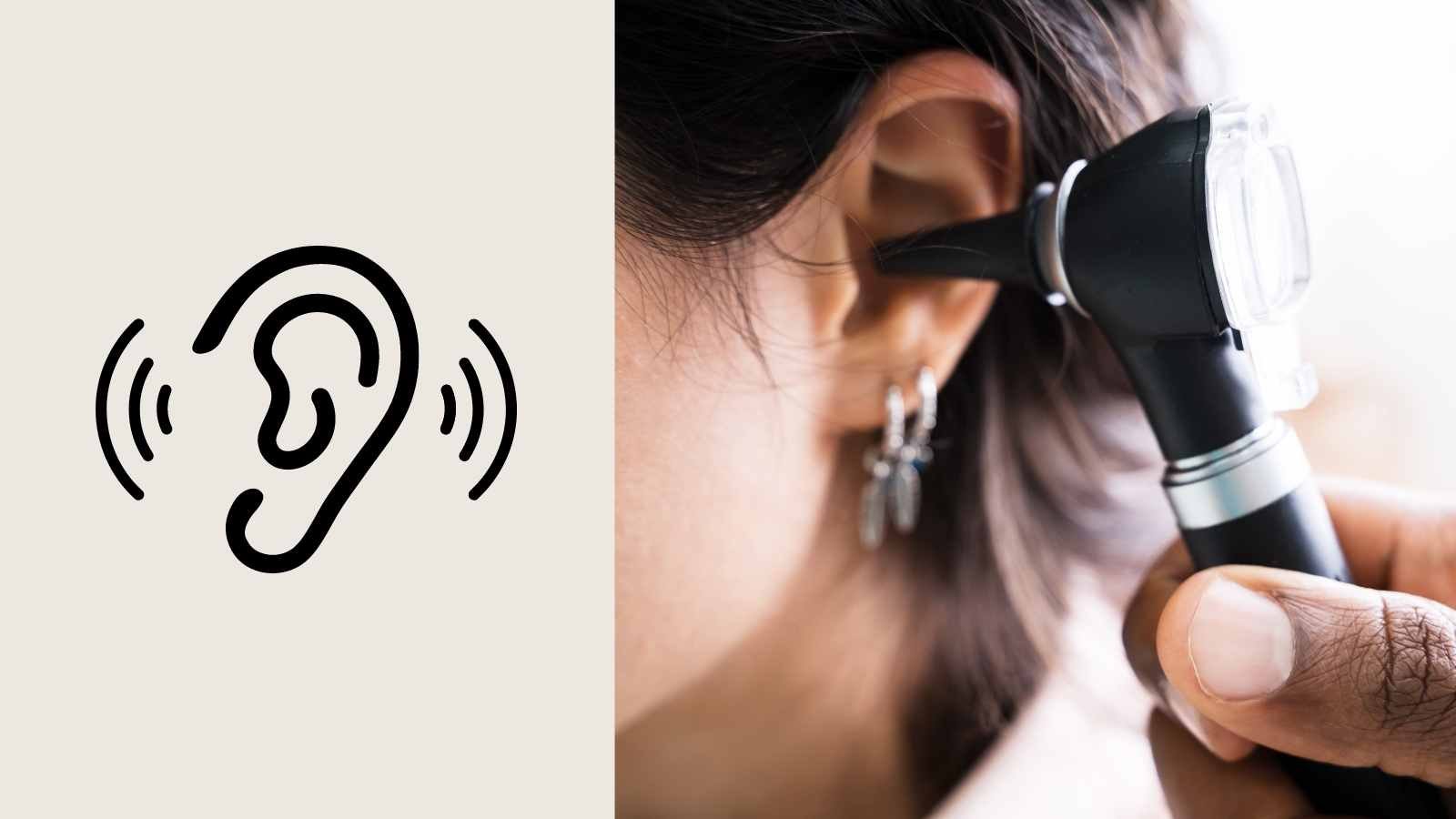
Did you know that fungal infection is one of the most common causes of itchy ears? Yep, it’s true. This type of infection grows where moisture and heat can accumulate, such as in the ear canal. A healthy level of ear wax in the ear prevents fungal infections from developing. However, several factors can contribute to a disease, such as trauma to the ear, water sports and a weakened immune system. Fungal infections can cause itching and discomfort and also create redness and soreness.
Treatment for Fungal Infections
Treatment usually involves cleaning the ear and applying antifungal medications like hydrocortisone or miconazole cream. With severe fungal infections, your doctor may prescribe oral antifungal drugs.
Swimmer's Ear
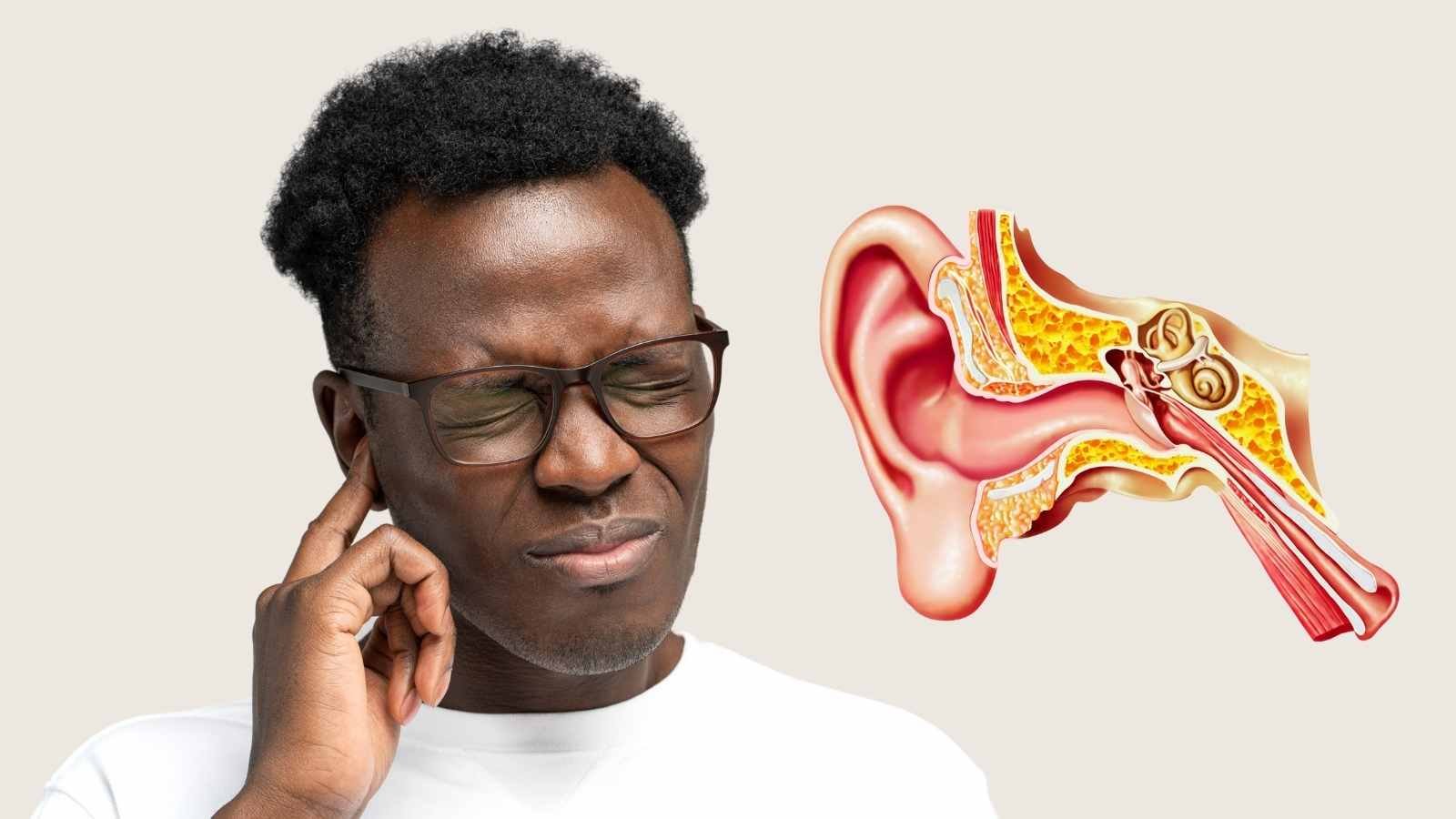
Swimmer's ear—aka, another word for otitis externa—is an outer ear infection that causes swelling and discomfort in the ear canal. While not only swimmers are affected, swimmer's ear frequently occurs after exposure to water. Bacteria can spread more rapidly in a body of water, and when water remains in the ear, it can lead to an ear infection. In more severe cases, swimmer's ear can lead to muffled hearing, pain, and discharge from the ear.
Treatment for Swimmer’s Ear
Your doctor will start by cleaning out the ear using tools, such as suction, to clear the way for medication to work effectively. Then, treatment often involves ear drops that reduce inflammation and restore the ear's natural ecosystem.
Earwax Build-Up
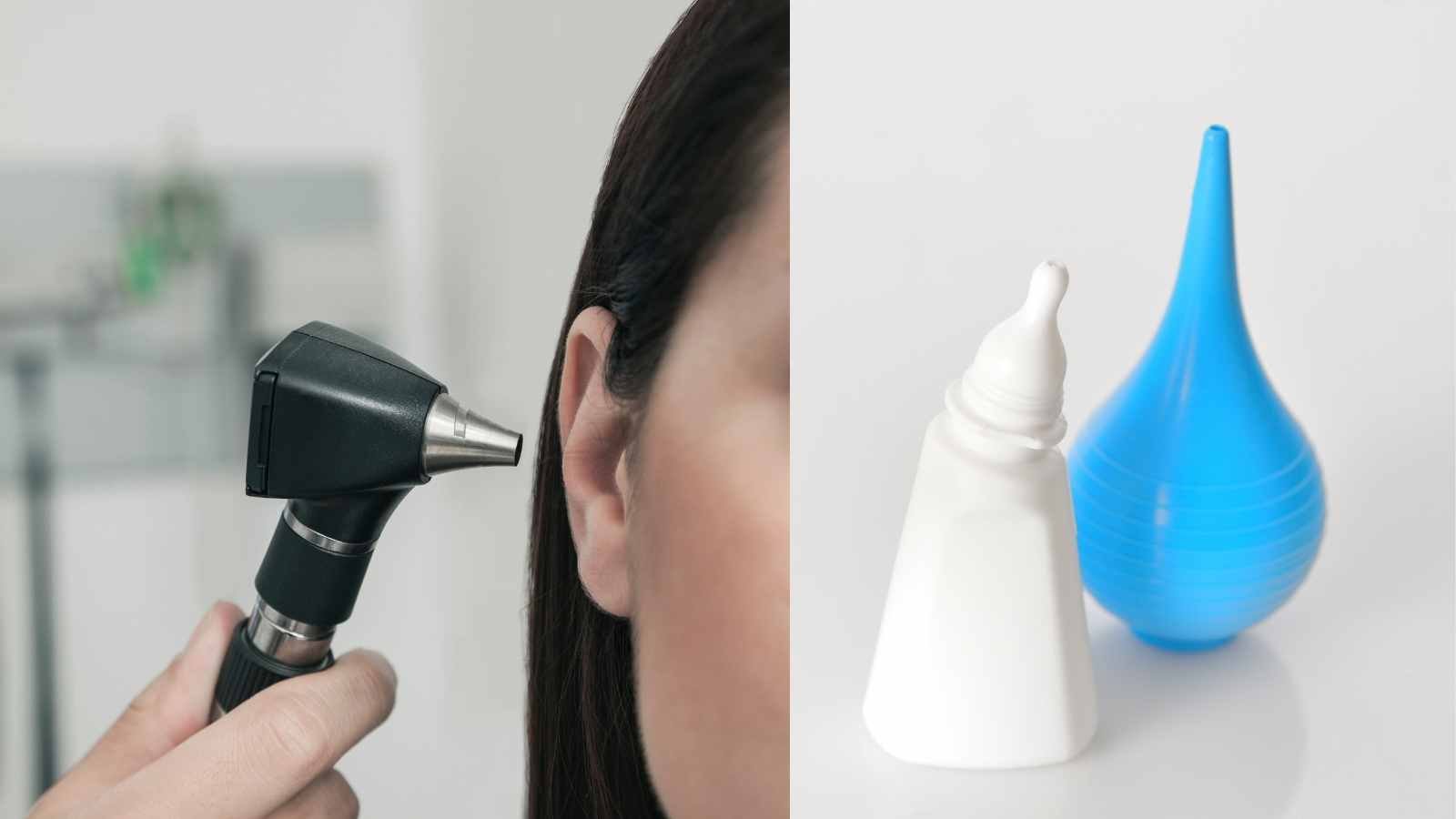
Another common cause of itchy ears is earwax build-up. While earwax is essential for protecting the ear from dirt and debris, too much wax can cause itching and discomfort and may happen to those who use hearing aids or headphones regularly. Think of it like this: The ear canal works like a conveyor belt system to help wax and debris out of the ear canal. On the other hand, a hearing aid or earbud in the ear can prevent the wax from coming out for those who produce a lot of earwax, which can lead to build-up.
Treatment for Ear Wax Build-Up
Use mineral oil in the ear to soften the wax for several minutes, then rinse the ears with warm water in the shower. Some ear canals need professional cleaning, as they are more prone to wax build-up. Consult your doctor or audiologist to help clean your ears safely and effectively.
Dry Skin

Suffer from dry skin? Itchy ears can also be caused by dry skin due to a lack of moisture or exposure to irritants like soaps, perfumes, detergents, or even hair products. Allergies to elements in these products can aggravate itchiness in the ear for some people. Additionally, a little ear wax in the ear is normal, healthy, and can help prevent dry skin.
Treatment for Dry Skin
Itchy skin is a common condition and it’s easily treatable. The best way to prevent itchy, dry skin is to avoid excessively hot water in the shower and keep your ears clean and dry. First, allow your ears to dry thoroughly by gently toweling off around the ear. Using a hairdryer briefly on a low setting can help dry the ears and the area around them. After thoroughly drying the ears, apply a moisturizer, such as a few drops of mineral oil. If you've recently started using a new shampoo, soap, or perfume, this may trigger irritation as well.
Other Causes
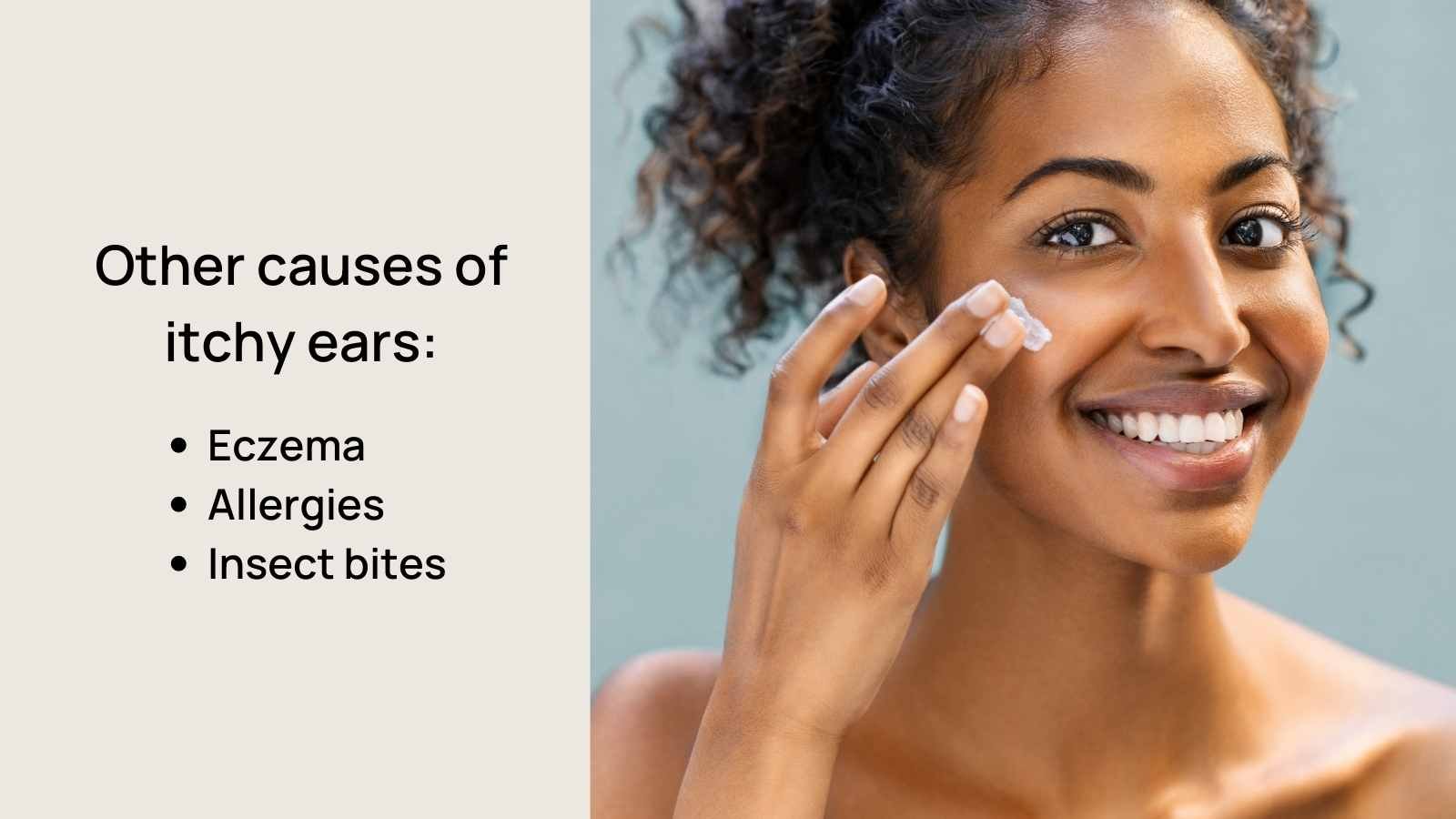
Other potential causes of itchy ears include:
- Eczema (a chronic skin condition characterized by redness and itching)
- Allergies (which may manifest as an itch in the ear canal)
- Even insect bites (which could lead to irritation)
However, if you're unsure what's causing your itchiness, it's best to consult a doctor for proper diagnosis and treatment.
What Not To Do
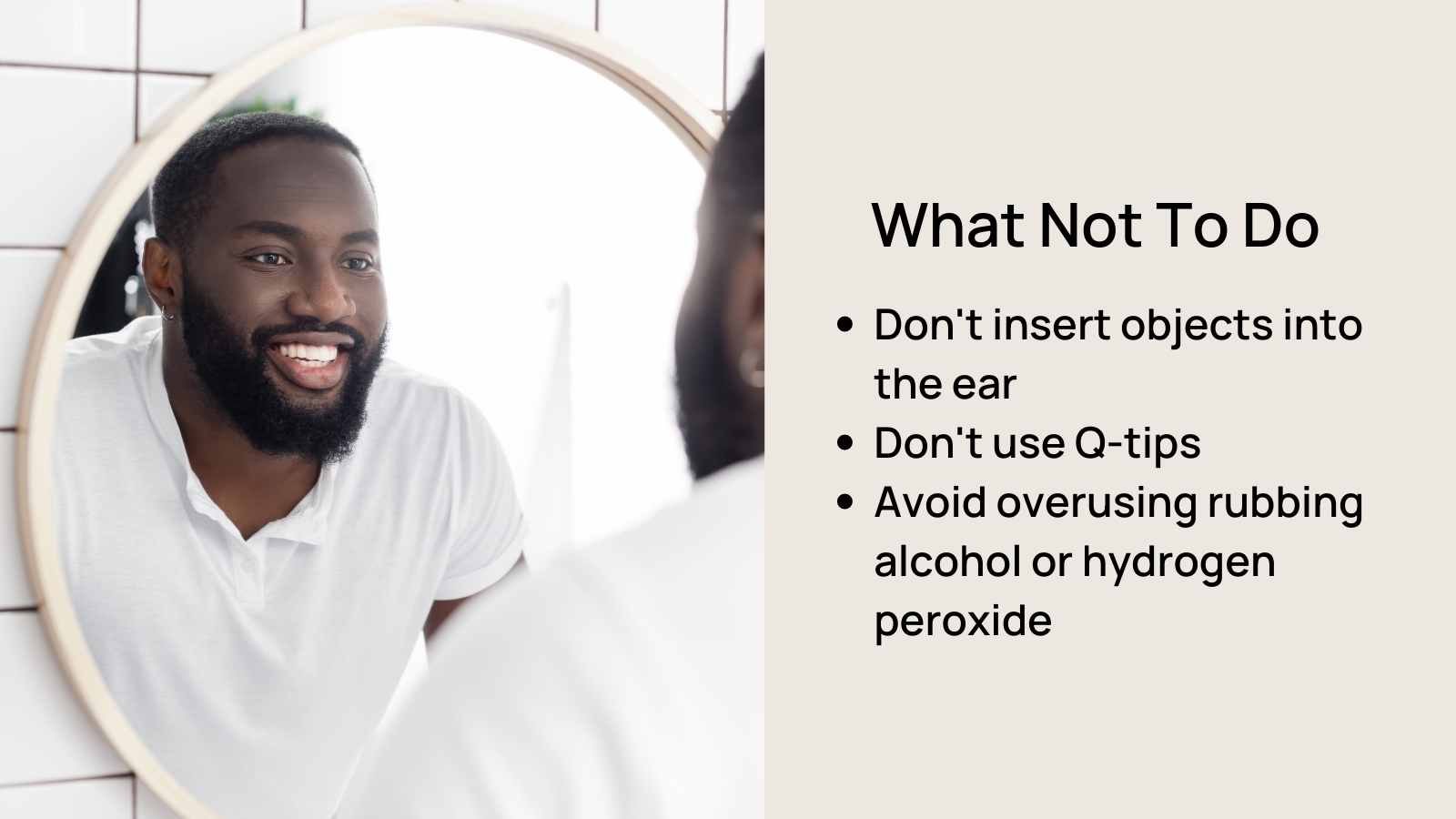
No matter what's causing your itchiness, avoid inserting any object into your ear canal—including Q-tips—as this can further irritate or damage delicate tissues inside the ear or push wax deeper into the canal, where it becomes difficult to remove. Additionally, avoid overusing rubbing alcohol or hydrogen peroxide, as these can further irritate sensitive skin inside the ear canal and lead to dryness. On a health-related note, please do not stick bobby pins or other objects in the ear to relieve the itch. In my experience, I've had patients come in after injuring themselves after trying to assuage discomfort. Rather than relieving itchiness, scratching or irritating the skin of the ear canal can have the opposite effect.
Conclusion
Itchy ears are common and, fortunately, easy to treat. Thankfully, there are plenty of ways to relieve itching without risking damage to your ears. By understanding what may be causing your symptoms and following safe treatment protocols prescribed by medical professionals—like audiologists or doctors—you can get back to enjoying life itch-free.



